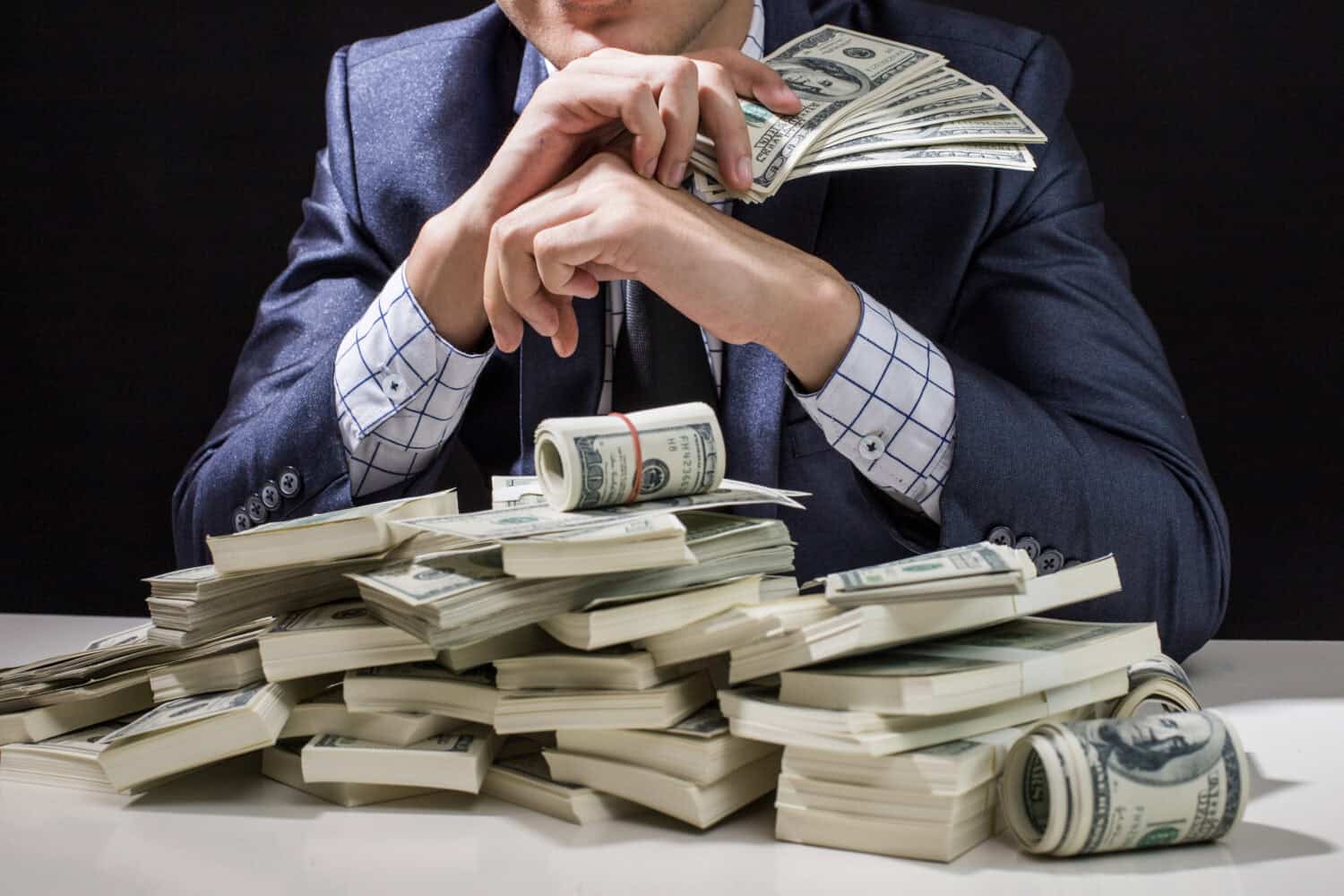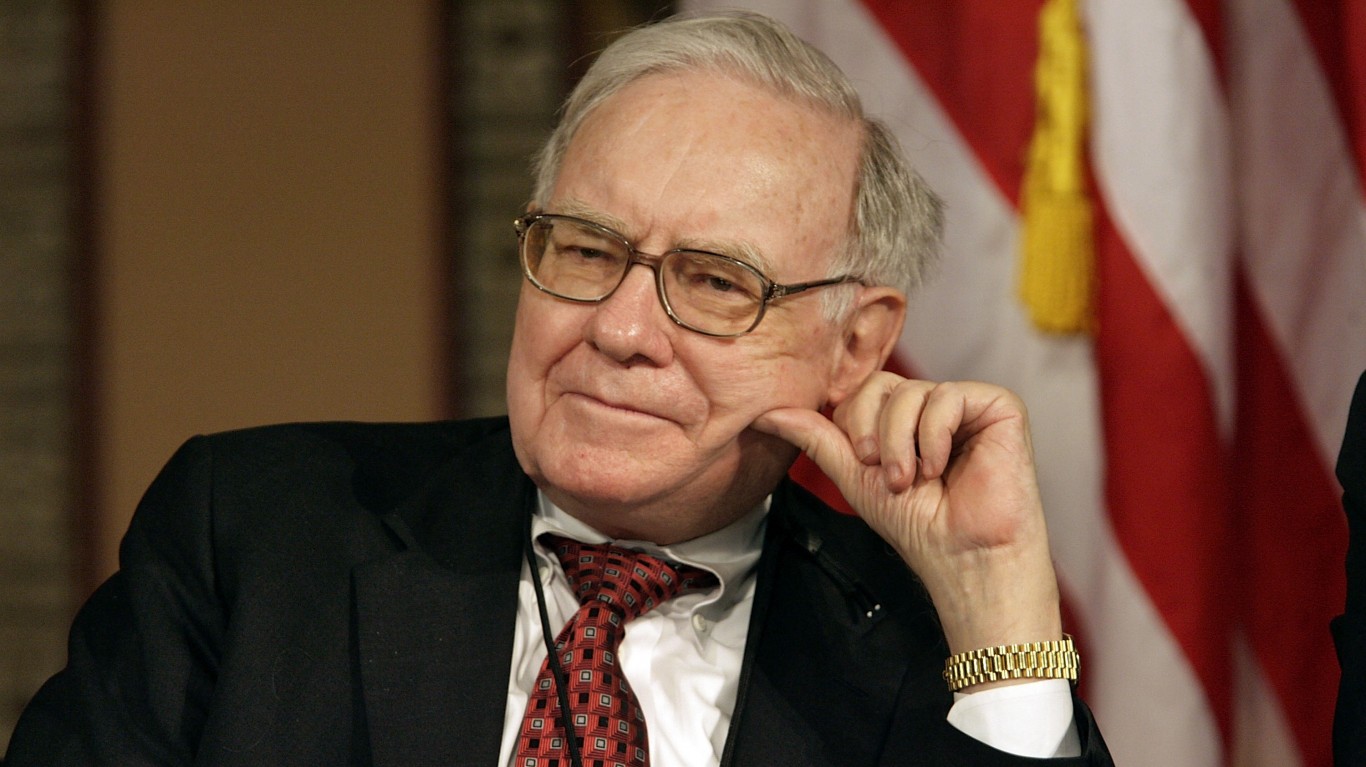
Remember when a stock becoming valued at $1 trillion was a big thing? The first company to do so was Apple (NASDAQ:AAPL) back in 2018. Now there are a half dozen trillion-dollar stocks. And while a company crossing that value point still garners some headlines, it’s not the gee-whiz moment it used to be.
Today, more people are likely to discuss when a stock will cross the $3 trillion threshold (there are three of them!) than who is next to achieve a $1 trillion valuation. Yet it is still a momentous occasion and the three stocks below are next in line to do so.
By itself, such a rich market capitalization is meaningless. Sure, it says the company is wildly successful. But these valuations can change quickly. Tesla (NASDAQ:TSLA) had once been a member of that elite club but is currently valued at half its $1.2 trillion peak valuation reached in 2022. So don’t be mesmerized by it.
Yet a company crossing that mark is still one to take notice of, especially if its business is growing strong.
Key Points About This Article:
- Trillion-dollar days aren’t quite commonplace, as only a half dozen companies have achieved it, but the threshold does suggest a thriving business lurks behind the dollar signs.
- Investors may want to take a closer look at the three companies that are within striking distance of reaching a $1 trillion valuation.
- If you’re looking for some stocks with huge potential, make sure to grab a free copy of our brand-new “The Next NVIDIA” report. It features a software stock we’re confident has 10X potential.
Berkshire Hathaway (BRK-A)(BRK-B)

Since becoming CEO of Berkshire Hathaway (NYSE:BRK-A)(NYSE:BRK-B) in 1964, Warren Buffett has racked up what you could call a rather impressive track record. The per-share returns of Berkshire between 1965 and 2023 total 4,384,748%, a 19.8% compounded annual growth rate. In comparison, the S&P 500 has returned only 31,233%, a 10.2% CAGR.
Money managers may surpass Buffett’s annual returns in any given year, but cumulatively no one can touch the Oracle of Omaha’s record. One can almost ask what took Berkshire Hathaway so long to reach its near-$1 trillion valuation?
At $983 billion, it is clear Buffett’s investment vehicle will achieve that goal sooner rather than later. Yet at 93 years old, the Oracle likely doesn’t have many years left. His partner Charlie Munger died last year at the age of 99. What worries many Berkshire Hathaway investors is whether his successors can match Buffett’s success.
Todd Combs and Ted Weschler are certainly capable investment managers. They have made a lot of Berkshire’s recent investment decisions, though Buffett typically handles all those over $1 billion.
It could very well be that when Buffett passes, Berkshire Hathaway’s valuation will fall. Maybe even markedly so until Combs and Weschler can prove to the market they can replicate Buffett’s success.
Eli Lilly (LLY)

Even though Eli Lilly (NYSE:LLY) was more than a year behind Novo Nordisk (NYSE:NVO) in introducing a fat-chewing glucagon‑like peptide‑1 (GLP-1) drugs, the pharmaceutical giant has made up for lost time.
Second-quarter revenue surged 36% to $11.3 billion on the strength of both Zepbound and Mounjaro, its weight-loss and diabetes therapies. Mounjaro generated $3.1 billion in sales while Zepbound contributed another $1.2 billion even though it was only introduced last November. Eli Lilly raised its revenue guidance for the full-year by $3 billion because of the expected uptake of the GLP-1 drugs.
More incredibly, analysts expect the twin treatments to bring in $30 billion for the pharma by 2026, slightly behind the $40 billion expected for Novo Nordisk’s Ozempic and Wegovy. Yet Lilly just reported that clinical trials show its key ingredient tirzepatide helped obese patients avoid getting diabetes even after stopping the medication. That could just catapult Mounjaro and Zepbound to the lead.
While Eli Lilly has other drugs on the market and in its pipeline, it is the obesity/diabetes treatments that has helped catapult LLY stock 810% higher over the past five years. With a $916 billion market cap, the pharma should break through $1 trillion very soon.
Taiwan Semiconductor Manufacturing (TSM)

The laggard of the bunch is Taiwan Semiconductor Manufacturing (NYSE:TSM), which has an $875 billion valuation. Its stock has only quadrupled in value in the last five years, but has nearly tripled since November 2022.
That, of course, is when ChatGPT was released and set off the mad scramble for artificial intelligence chips. As the world’s largest pure-play chip foundry that counts as its customers all of the biggest AI chipmakers, including Nvidia (NASDAQ:NVDA), Broadcom (NASDAQ:AVGO), and Advanced Micro Devices (NASDAQ:AMD), TSM has ridden the AI wave to new heights. It says AI revenue is growing 50% a year.
The biggest problem for Taiwan Semiconductor is meeting demand. It is operating at almost full capacity and is building new manufacturing plants to help solve the crunch. In particular, CEO C.C. Wei told analysts he is hopeful the foundry will be able to meet those needs between now and 2026.
Yet with TSM operating at peak performance, any hiccup could cause a miss leading to the stock falling. Also if businesses don’t see the returns on investment AI promises, they could slow their orders and demand for AI chips could decrease. As Taiwan Semiconductor is priced for perfection, it may be the riskiest of the three stocks in line for a trillion-dollar valuation.
In 20 Years, I Haven’t Seen A Cash Back Card This Good
After two decades of reviewing financial products I haven’t seen anything like this. Credit card companies are at war, handing out free rewards and benefits to win the best customers.
A good cash back card can be worth thousands of dollars a year in free money, not to mention other perks like travel, insurance, and access to fancy lounges.
Our top pick today pays up to 5% cash back, a $200 bonus on top, and $0 annual fee. Click here to apply before they stop offering rewards this generous.
Flywheel Publishing has partnered with CardRatings for our coverage of credit card products. Flywheel Publishing and CardRatings may receive a commission from card issuers.
Thank you for reading! Have some feedback for us?
Contact the 24/7 Wall St. editorial team.





